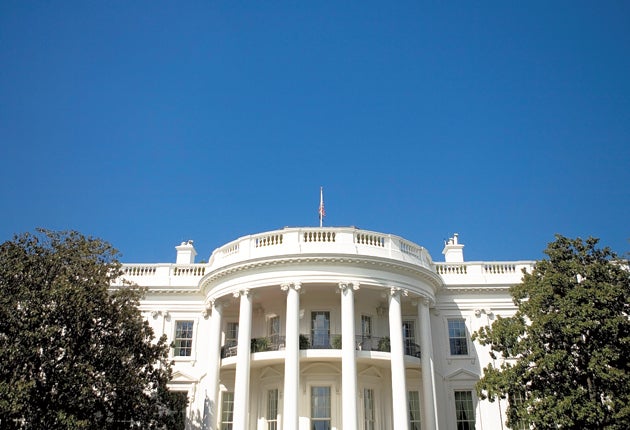Now Washington turns into a battleground
Democrats fear presidential agenda will be brought to standstill

The spectre of 1994 will hang heavily over the newly buoyant Republicans preparing to head to Washington in early January. Back then, channelling voter anger with Bill Clinton's first two years in office, the GOP took control of the House with a 54-seat swing and used that power to effectively grind the presidential agenda to a halt.
When America returned to the polls, two years later, Clinton was re-elected, with an increased majority.
This time, the "Republican Revolution" has given them control of the House with a swing of 60 seats, although the current first-term Democratic President still boasts a slim majority in the Senate. Many in the Tea Party movement would like the GOP to once more behave as the "Party of No". But if the limit of their ambition is to simply grind government to a halt, they may find in 2012 that history repeats itself. The first indication of GOP ambitions came in the early hours of yesterday when John Boehner, the likely new Majority Leader in the House, claimed Americans had voted for "limited government", and said his first priority would be to roll back the "monstrosity" of Barack Obama's healthcare reform package. He'll be lucky: the Democrats are open to tweaking their totemic bill, but have retained more than enough power, through their Senate majority and the presidential veto, to see off efforts to "repeal and replace".
A more imminent battleground is tax. The first item on Washington's agenda in the new year is what to do about the Bush-era tax cuts for the super-wealthy, which expire imminently. Republicans would like them extended indefinitely; Democrats say any extension should only affect people with incomes under $250,000. On paper, the issue is politically awkward for the GOP – who claim, after all, to be favour of reducing their country's deficit – so they could be open to horse-trading. Most analysts expect them to bash out a compromise.
Speaking of national debt, the Republicans talk a good game about reducing the size of government, but they must overcome a credibility gap. The non-partisan Congressional Budget Office says the "Pledge to America", on which the GOP stood at the midterms, would actually increase the deficit by $700bn (£435bn), since it extends tax cuts for the wealthy but offers few specific cuts to spending outside of healthcare repeal. A bi-partisan fiscal commission will release an important report on government finances on 1 December, after which both sides may forfeit some principles by agreeing to a mixture of tax increases and spending cuts.
The issue of climate change is different, since the vast majority of Republicans deny its very existence. The Democrats failed this year to pass "cap and trade" legislation limiting greenhouse gas emissions, but a showdown is nonetheless on the horizon since, unless a bill passes soon, President Obama's Environmental Protection Agency will start phasing in strict regulations on power plants. Perhaps the only hope of a deal would be "energy independence" legislation which reduces US reliance on foreign oil by expanding nuclear, solar, and wind power while also allowing more drilling in Alaska and the Gulf.
A final piece in the political jigsaw is immigration reform, which President Obama promised during the 2008 election campaign to enact in the first year of his administration. He has so far failed. And the chances of any sweeping new "path to citizenship" for illegal aliens probably died on Tuesday night. Both sides perhaps now have more to gain from leaving the issue bubbling away unresolved: the Republicans can use it to engage their white base, while Democrats hope it will secure the support of Latino voters in 2012. A cynical business, maybe. But that's politics.
The bones of contention
* Taxation and economy
The coming debate over repealing tax cuts will force the Republicans to take a stand – or compromise – fast. They now control key House spending committees.
* Healthcare
Though unable to repeal Obama's healthcare reforms, the Republicans will potentially be able to starve the system of cash and make it practically much harder to put into place.
* Climate change
With many incoming Republicans climate change sceptics, a stalled bill that would have cut CO2 emissions is most likely now dead.
* Washington's political culture
The influx of Tea Party members may be more difficult for their Republican colleagues than the Democrats. Many Tea Partiers view their own party establishment as a corrupt elite.
Join our commenting forum
Join thought-provoking conversations, follow other Independent readers and see their replies
Comments
Bookmark popover
Removed from bookmarks